
Yamaha unveils self-riding motorbike with no handlebars
Yamaha has unveiled a self-riding electric motorbike that features no handlebars or other standard controls. The Yamaha Motoroid 2 is the next generation of the firm’s Motoroid concept bike first revealed in 2017, but unlike its predecessor, Yamaha has built a working prototype of the latest vehicle. The self-balancing bike features gyroscopes and image recognition AI systems to stay upright and navigate roads, while also being capable of riding itself without anyone aboard. “Motoroid 2 is a vehicle for personal mobility that can recognise its owner, get up off its kickstand and move alongside its rider,” the company said. “[It] has a distinctly lifelike feel when somebody is riding on its back and has a presence more like a lifetime companion.” Yamaha plans to show off the prototype of the Motoroid 2 at the Events Japan Mobility Show 2023 in Tokyo next month. It is not clear whether Yamaha plans to release a production model of the bike, however its continued development suggests that the automotive giant is working to integrate at least some of its features into future motorcycles. Self-driving technology is increasingly common in production vehicles, though it is currently limited to four-wheeled cars and trucks. Some have even considered eschewing steering wheels, with Tesla chief executive Elon Musk originally planning to build a fleet of self-driving electric taxis that have no visible user controls. The plan was reportedly sidelined after company executives noted that regulators in most major markets require steering wheels and pedals on vehicles. Several motorcycle manufacturers have unveiled concept bikes that require no rider to operate. BMW’s ConnectedRide retrofits the company’s R 1200 GS Adventure with autonomous technology to serve as a “testbed for advanced motorcycle safety” equipment that it hopes to introduce to its production models. “In a future world of autonomously driving cars, being connected will be an urgent requirement for all motorcycle segments,” BMW’s Markus Schramm said in 2020. “This will enhance safety and ensure that motorcycling remains future-proof.” Read More Reinventing the seatbelt for the self-driving era
2023-10-11 23:49

Mystery signals coming from space might finally have been explained by ‘starquakes’
Mysterious blasts coming from deep in space could be the result of “starquakes”, according to a new study. For years, scientists have been observing fast radio bursts, or FRBs, coming from distant parts of space. They are very intense, very short blasts of energy – and despite finding many of them, researchers still do not know where they are coming from or how they might be formed. Now, scientists have spotted that there is appears to be similarities between those FRBs and earthquakes. Researchers behind the new study suggest that the blasts could be the result of similar behaviour on neutron stars, known as starquakes. It is just one possible explanation for the unusual bursts, which have led to suggestions they could be anything from neutron stars colliding with black holes to alien technology. Most have settled on the belief that at least some of those FRBs come from neutron stars, however, which are formed when supergiant stars collapse into an incredibly dense, small object. In the new study, researchers looked at data from nearly 7,000 bursts, taken from three different sources that are sending out repeated FRBs, examining the time and energy that they emerged in. They then also looked at earthquake information taken from Japan, and data on solar flares, and looked to compare the three. There was little connection between FRBs and solar flares, the researchers found. But there was a striking similarity between the blasts and earthquakes. “The results show notable similarities between FRBs and earthquakes in the following ways: First, the probability of an aftershock occurring for a single event is 10-50%; second, the aftershock occurrence rate decreases with time, as a power of time; third, the aftershock rate is always constant even if the FRB-earthquake activity (mean rate) changes significantly; and fourth, there is no correlation between the energies of the main shock and its aftershock,” said Tomonori Totani from the University of Tokyo, one of the leaders of the study. The findings have led scientists to speculate that there is a solid crust on the outer surface of neutron stars. That crust then experiences starquakes in the same way the Earth’s surface does – and those quakes then let out powerful blasts of energy that make their way to us as FRBs. But researchers say they will need to further examine those FRBs to better understand the connection between the two – as well as to help give us information about quakes and other physical phenomena that are closer to home. “By studying starquakes on distant ultradense stars, which are completely different environments from Earth, we may gain new insights into earthquakes,” said Professor Totani. “The interior of a neutron star is the densest place in the universe, comparable to that of the interior of an atomic nucleus. “Starquakes in neutron stars have opened up the possibility of gaining new insights into very high-density matter and the fundamental laws of nuclear physics.” The research is described in a new paper, ‘Fast radio bursts trigger aftershocks resembling earthquakes, but not solar flares’, published in the journal Monthly Notices of the Royal Astronomical Society.
2023-10-11 23:28
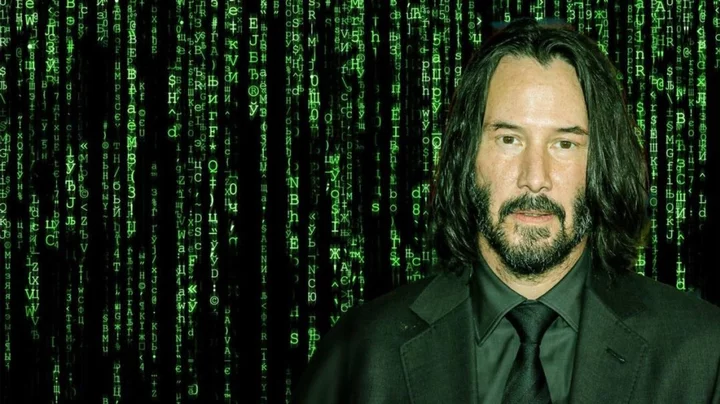
Scientist publishes 'evidence' that we really could all be living in the Matrix
“The Matrix is everywhere. It is all around us. Even now in this very room." So says Laurence Fishburne’s Morpheus in sci-fi classic ‘The Matrix’ as he offers Keanu Reeves’s Neo the choice to find out just how “deep the rabbit hole goes”. Now, just as Neo discovered that the "life" he'd been living was little more than an algorithmic construct, scientists and philosophers are arguing that we could be stuck inside a simulation ourselves. In a paper published earlier this month, physicist Melvin Vopson, of the University of Portsmouth, offered scientific evidence for a philosophical theory known as the simulation hypothesis. This, in a nutshell, posits that the entire universe and our objective reality are just super-advanced virtual reality illusions. Elon Musk is among the well-known fans of the theory, which – as Dr Vopson notes in his paper – has been “gaining traction in scientific circles as well as in the entertainment industry”. The university lecturer also pointed out that recent developments in a branch of science known as information physics “appear to support this possibility”. Information physics suggests that physical reality is fundamentally made up of bits of information. However, Dr Vopson has gone further and is working to prove that information has a physical mass and is a fundamental building block of the universe. He even claims that information could be the mysterious dark matter that makes up almost a third of the universe. In previous research, the physicist proposed that all elementary particles (the smallest known building blocks in the universe), store information about themselves, much like DNA in humans. Then, in 2022, he discovered a new law of physics, christened the second law of infodynamics, which states that entropy – the degree of randomness or disorder – within an isolated information system either remains constant or decreases over time. In other words, the system becomes less and less chaotic, implying that there is some kind of mechanism governing it rather than random chance. “I knew then that this revelation had far-reaching implications across various scientific disciplines,” Dr Vopson said in a statement released by the University of Portsmouth. “What I wanted to do next is put the law to the test and see if it could further support the simulation hypothesis by moving it on from the philosophical realm to mainstream science.” Is the Universe a Simulation? | Melvin Vopson www.youtube.com Dr Vopson employed the law in a range of different fields, including genetics, cosmology and even symmetry. Here, he found that the abundance of symmetry in the Universe (think snowflakes and facial structures) could be explained by the second law of infodynamics. "Symmetry principles play an important role with respect to the laws of nature, but until now there has been little explanation as to why that could be,” he said. “My findings demonstrate that high symmetry corresponds to the lowest information entropy state, potentially explaining nature's inclination towards it." Again, put simply, nature prefers things to be as well-ordered as possible. He continued: “This approach, where excess information is removed, resembles the process of a computer deleting or compressing waste code to save storage space and optimise power consumption.” As a result, this “supports the idea that we’re living in a simulation.” Dr Vopson is serious about this idea and, last year, even launched a crowdfunding campaign to test it. At the time, he announced that he had designed an experiment to determine whether we are all just characters in an advanced virtual world. “There is a growing community out there looking seriously at the possibility that information is more fundamental to everything than we think,” he said in a statement released back in December. “If information is a key component of everything in the universe, it would make sense that a vast computer somewhere is in control. “Assuming the universe is indeed a simulation, then it must contain a lot of information bits hidden everywhere around us. I’ve devised an experiment that proposes a way of extracting this information to prove it’s there.” His proposed experiment is based on his conclusion that information is physical and that elementary particles have a DNA of information about themselves. He posited that the information in an elementary particle could be detected and measured by using particle-antiparticle collision. “We can measure the information content of a particle by erasing it. If we delete the information from the particles, we can then look at what’s left,” he said in the December statement. “This experiment is highly achievable with our existing tools, and I’m hoping the crowdfunding site will help us achieve it.” And whilst the crowdfunder closed well before reaching its proposed £185,000 target, Dr Vopson still hopes to carry out the ambitious test. Following his most recent paper, he suggested the experiment had the power to confirm the “fifth state of matter in the universe” and “change physics as we know it.” Sign up for our free Indy100 weekly newsletter Have your say in our news democracy. Click the upvote icon at the top of the page to help raise this article through the indy100 rankings.
2023-10-11 22:55

Ebay faces $2 billion fine for ‘rolling coal’ sales
Ebay is facing a fine of nearly $2 billion for allegedly enabling the sale of ‘rolling coal’ devices and other deliberately polluting equipment that violates environmental laws. The US Department of Justice alleges that the online retailer sold more than 343,000 so-called defeat devices in violation of the Clean Air Act, with each sale the subject of a $5,580 fine. Rolling coal has become a form of anti-environmentalism protest in the United States, involving the modification of a diesel engine in order to emit black clouds of sooty exhaust fumes. Online video compilations show drivers of pickup trucks deliberately rolling coal as they pass cyclists and electric vehicles. Until recently, the devices required to perform it were relatively easy to find through online retailers, costing between $200-500. The Justice Department wrote in its complaint, which was filed on behalf of the Environmental Protection Agency (EPA) in a federal court in New York, that the rolling coal devices “defeat motor vehicle emission controls” set out in the Clean Air Act. “Aftermarket defeat devices significantly increase pollution emissions – including carbon monoxide, nitrogen oxides, particulate matter and nonmethane hydrocarbons – that harm public health,” the complaint stated. The EPA criminalised the practice, which appears to be mainly confined to the US, in 2014, with some states warning of fines of up to $5,000 for anyone caught doing it. Several companies who sell coal rolling equipment have already been forced to pay fines of up to $1 million for breaking the law. “Our nation’s environmental laws protect public health and the environment by prohibiting the unlawful sales of defeat devices; unregistered, misbranded and restricted use pesticides; and unsafe products containing toxic chemicals,” David Uhlmann from the EPA’s Office of Enforcement and Compliance Assurance said following the Justice Department’s latest action against eBay. “The complaint filed demonstrates that EPA will hold online retailers responsible for the unlawful sale of products on their websites that can harm consumers and the environment.” Ebay described the lawsuit as “entirely unprecedented”, claiming that sales of such devices were banned and that it was actively policing its site against their sale. “Maintaining a safe and trusted marketplace for our global community of sellers and buyers is a fundamental principle of our business,” the company said. “Indeed, eBay is blocking and removing more than 99.9 per cent of the listings for the products cited by the DOJ, including millions of listings each year.” Read More World’s first solar powered hybrid truck tested on public roads Why is Elon Musk obsessed with the letter X? How Elon Musk’s Twitter became a haven for fake news and misinformation Viral WhatsApp warning of cyberattack targeting Jewish people is fake
2023-10-11 21:17
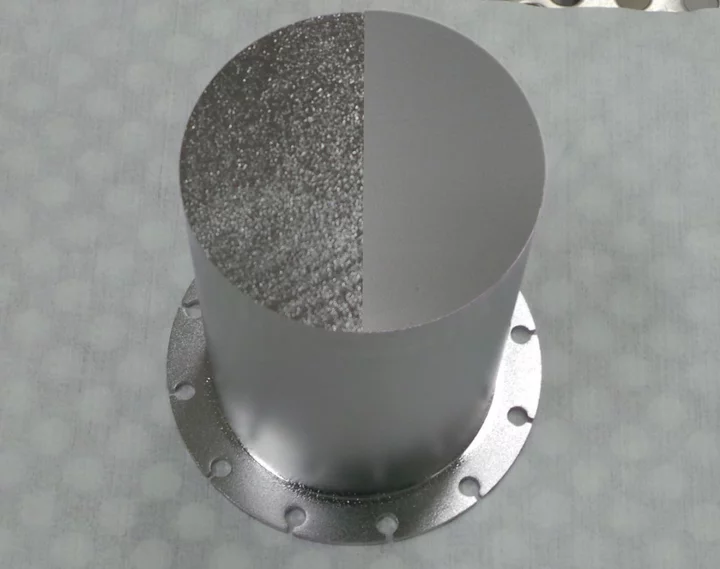
China’s discovery of never-before-seen ore could propel battery technology
A never-before-seen ore containing vast quantities of an element widely used in semiconductors has been found in China in a discovery that could propel new advances in battery technology. Geologists found rare earth metal niobium inside the new ore named niobobaotite from north China’s Inner Mongolia. The rare earth metal is widely used in alloys for jet engines and rockets and has also been shown to have exceptional current conducting properties in low temperatures. Some researchers have said batteries made from niobium have several advantages over traditional lithium-ion batteries. The main source of niobium until now has been from the ore mineral columbite that is extracted widely in Canada, Brazil, Australia and Nigeria, with China obtaining nearly 95 per cent of the element for its steel industry via imports. If geologists can prove that sufficient volume and quality of niobium can be extracted from niobobaotite, experts said it could help make China “self-sufficient”, reported the South China Morning Post newspaper. The niobobaotite ore has received official approval from the International Mineralogical Association’s classification committee, according to the China National Nuclear Corporation, a state-run enterprise responsible for overseeing China’s civilian and military nuclear programmes. The Brazilian Metallurgy and Mining Company (CBMM) has been working on new projects towards the use of niobium to make advanced lithium-ion batteries. China’s state news agency Xinhua reported earlier this year that CBMM is partnering with universities, research centres and battery makers to improve the use of the rare earth element in lithium batteries. Niobium batteries are expected to bring several advantages over traditional lithium-ion batteries that tend to pose challenges like safety risks, short life cycles and long charging times, Antonio Castro Neto, director of the National University of Singapore’s Centre for Advanced 2D Materials, said earlier this year. “We have made significant progress in our development of niobium-graphene batteries which are proving to be a game changer in safety, efficiency, and sustainability,” Dr Neto said. Researchers said the performance duration of niobium-graphene batteries can be 10 times longer than traditional lithium-ion batteries, thus making them last for an estimated 30 years and make them more durable and reliable as well. These batteries, currently in development, can also be fully charged in less than 10 minutes, they said. “As they have a longer lifespan, the new graphene-niobium batteries significantly reduce total cost of ownership compared to existing lithium-ion batteries and have ultrafast charging capabilities. In addition, they offer higher safety as they do not risk explosion even in high temperatures,” Rogerio Ribas, CBMM’s global head of batteries, said in a statement. Read More China’s ‘government-approved’ AI chatbot says Taiwan invasion is likely Australian-Chinese journalist detained for 3 years in China returns to Australia Driver killed after crashing into Chinese consulate in San Francisco had knives and crossbow EU asks Elon Musk to ‘walk the talk’ on X/Twitter disinformation over Hamas attack Earth hit by a huge solar storm that would devastate civilisation, trees show Viral WhatsApp warning of cyberattack targeting Jewish people is fake
2023-10-11 15:47
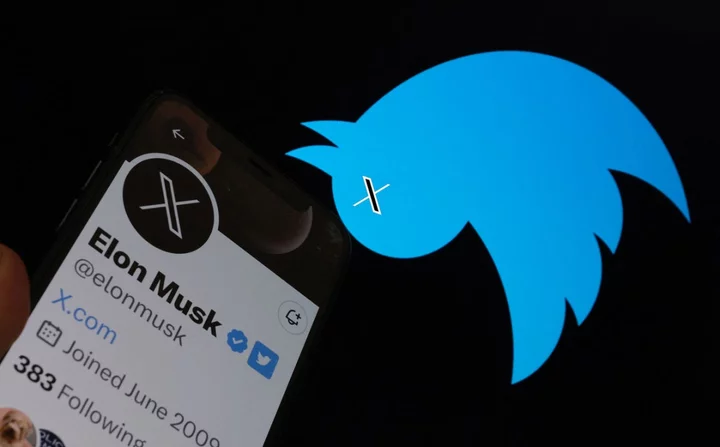
EU asks Elon Musk to ‘walk the talk’ on X/Twitter disinformation over Hamas attack
A top EU official has asked X/Twitter owner Elon Musk to “walk the talk” when it comes to curbing fake content and the glorification of violence following the terror attack against Israel by Hamas. EU commissioner Thierry Breton wrote in an open letter shared on X that illegal content and disinformation were being shared via the social media platform about the Hamas incursion into Israel, which began on Saturday. He warned the EU could punish X for failure to comply with its obligations to moderate content under the Digital Services Act, and gave Mr Musk 24 hours to give a “prompt, accurate and complete response”. “You need to be very transparent and clear on what content is permitted under your terms and consistently and dingently enforce your own policies,” Mr Berton said, adding that the social media company “must be timely, diligent and objective” in taking action and removing relevant content when it receives warranted notices of illegal content in the EU. “I therefore invite you to urgently ensure that your systems are effective, and report on the crisis measures taken to my team,” the EU commissioner said, calling for Mr Musk to respond within 24 hours. Replying to the statement, the Tesla chief called on the commissioner to “list the violations”. “Our policy is that everything is open source and transparent, an approach that I know the EU supports. Please list the violations you allude to on X, so that that the public can see them,” the multibillionaire posted on X. “You are well aware of your users’ – and authorities’ – reports on fake content and glorification of violence. Up to you to demonstrate that you walk the talk,” Mr Breton said in response to Mr Musk’s tweet. While X has claimed it was treating the ongoing crisis in Israel with its highest level of response, watchdog groups and the EU said misinformation and harmful content continue to flourish on the microblogging platform. X’s own safety team acknowledged there had been an increase in daily active users on X in the conflict area in the past couple of days, saying that there have been more than 50 million posts globally focusing on the weekend attack. “As the events continue to unfold rapidly, a cross-company leadership group has assessed this moment as a crisis requiring the highest level of response,” the team said. The struggle to find reliable news on the platform was exacerbated when Mr Musk himself flagged two accounts as “good” for “following the war”. Journalists, however, pointed out that these accounts had previously shared a fake AI-generated image of an explosion at the US Pentagon, and that one of them had also posted antisemitic comments. Mr Musk’s posts recommending them have now been deleted. Users on the platform also pointed out that old videos are being repackaged and circulated on X as if they are from the most recent attack. One widely shared video falsely claimed to show a Hamas militant shooting down an Israeli helicopter, but was later found to be a clip from a video game. “Public media and civil society organisations widely report instances of fake and manipulated images and facts circulating on your platform in the EU, such as repurposed old images of unrelated armed conflicts or military footage that actually originated from video games,” the Eu commissioner said in his letter addressing Mr Musk. X has not immediately responded to The Independent’s request for comment. Read More X promises 'highest level' response on posts about Israel-Hamas war. Misinformation still flourishes Holocaust survivor among hostages and ‘several Americans’ may have been killed or kidnapped, says Blinken Musk begs Twitter users to stay ‘as close to the truth as possible’ as fake news about Gaza war proliferates
2023-10-11 14:26
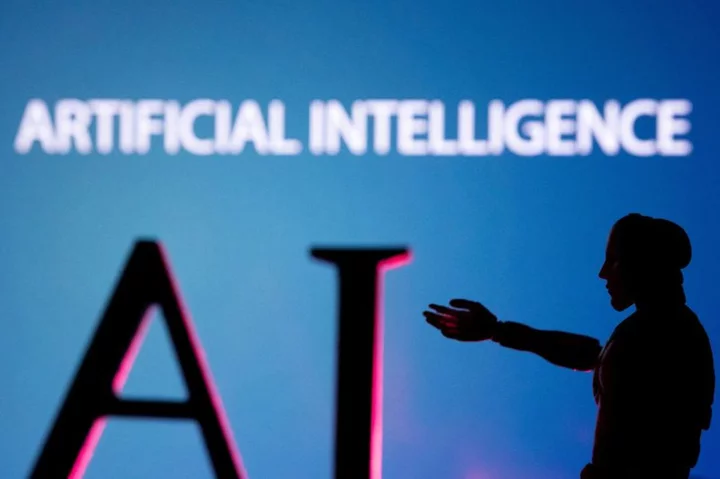
Exclusive-Southeast Asia eyes hands-off AI rules, defying EU ambitions
By Fanny Potkin and Supantha Mukherjee SINGAPORE/STOCKHOLM Southeast Asian countries are taking a business-friendly approach to artificial intelligence
2023-10-11 09:18

Who is playing college football tonight, Oct. 10?
Conference-USA and the Sun Belt get college football started early this week with several games on the schedule for Tuesday night.
2023-10-11 06:21
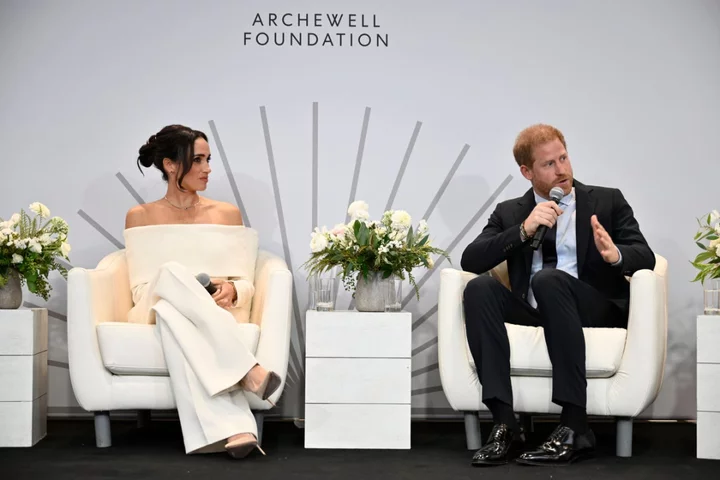
Duke and Duchess of Sussex call for overhaul of social media
The Duke and Duchess of Sussex have urged social media companies to reduce the amount of harmful content children can see online to protect their mental health. Harry and Meghan made the remarks at a mental health awareness festival run by non-profit Project Healthy Minds in New York on Tuesday. They are visiting the city for the first time since being caught up in what they called a catastrophic car chase there in May. The royal couple, who have spoken about their own mental health challenges in the past, took part in a panel discussion alongside US surgeon general Vivek Murthy moderated by NBC host Carson Daly, who has previously spoken of his struggles with anxiety. The event, on World Mental Health Day, has been co-ordinated by the duke and duchess’s Archewell Foundation. The couple called on social media firms to adopt better content moderation policies and tweak apps which can prove addictive for youngsters. They spoke after hearing from parents who have lost children to mental health issues linked to social media use. The duke urged tech bosses to “stop sending children content you wouldn’t want your own children to see”. The duchess said she and her husband are focusing on what they can do behind the scenes to make social media use “safer, better and more positive” and that the couple have spoken to tech executives about the issue. She added: “People are getting hurt – and people, specifically children, are dying. “A year ago we met some of the families, not all of them. At that time, it was impossible to not be in tears as I’m sure so many of you have been today hearing these stories. “As parents, our kids are really young – they’re two-and-a-half and four-and-a-half – but social media is not going away. “I think by design, there is an entry point that is supposed to be positive, in creating community and something has devolved, and there is no way to hear that and not try to help these families have their stories be heard.” In the UK, the Princess of Wales gave a speech to young people gathered in Birmingham for a day of workshops and discussions to mark World Mental Health Day, with her husband in the audience. Harry and Meghan were all smiles when they visited the Marcy Lab School in Brooklyn, New York earlier on Tuesday. The school’s website claims it is the “alternative to college that you have been looking for” for people looking to start a career in tech. Harry was applauded when he told a meditation class that “if one of you starts to go quiet, doesn’t show up, you need to find out why” and added “remember to have fun”. Meghan, who was wearing a varsity letterman jacket given to her at the Robert Clack School in Essex in March 2020, told a class she wishes her children were with her but they are “doing well”. Students later rushed to take pictures with the royal couple before the school’s co-founder Reuben Ogbonna joked “back to class, everyone”. Read More Google to trial AI in UK traffic light systems to reduce stop-and-go emissions Broadband customers face £150 hikes because of ‘outrageous’ rises – Which? Rise of AI chatbots ‘worrying’ after man urged to kill Queen, psychologist warns William hails ‘amazing’ eco-friendly start-up businesses Royal website subject to ‘denial of service attack’, royal source says TikTok finds and shuts down secret operation to stir up conflict in Ireland
2023-10-11 06:21
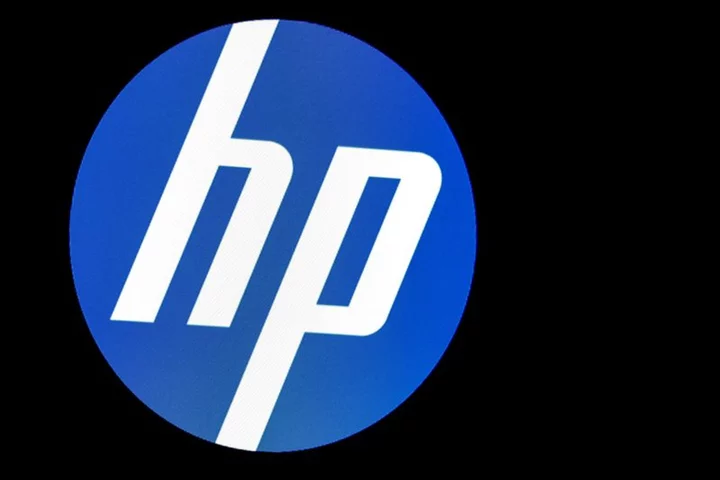
HP announces outlook for fiscal 2024 and hikes annual dividend
HP Inc on Tuesday forecast fiscal 2024 earnings largely in line with estimates and raised its annual dividend,
2023-10-11 06:17
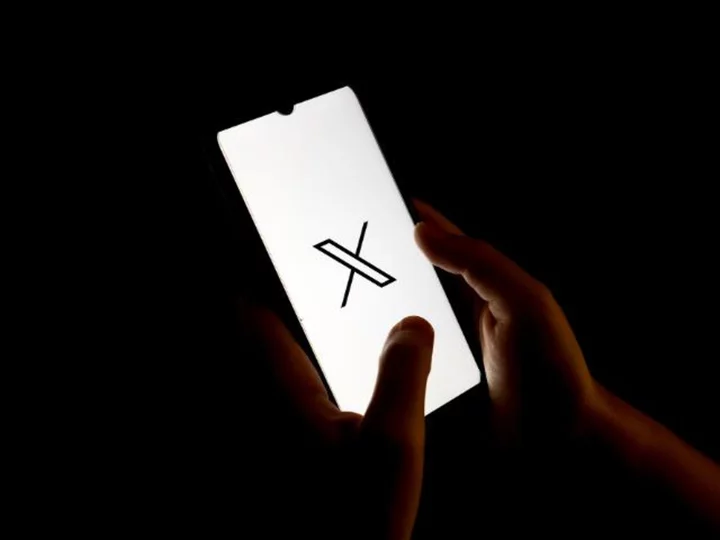
EU warns Elon Musk of 'penalties' for disinformation circulating on X amid Israel-Hamas war
European officials warned X on Tuesday that the company formerly known as Twitter appears to have been hosting misinformation and illegal content about the war between Hamas and Israel, in potential violation of the European Union's signature content moderation law.
2023-10-11 04:27
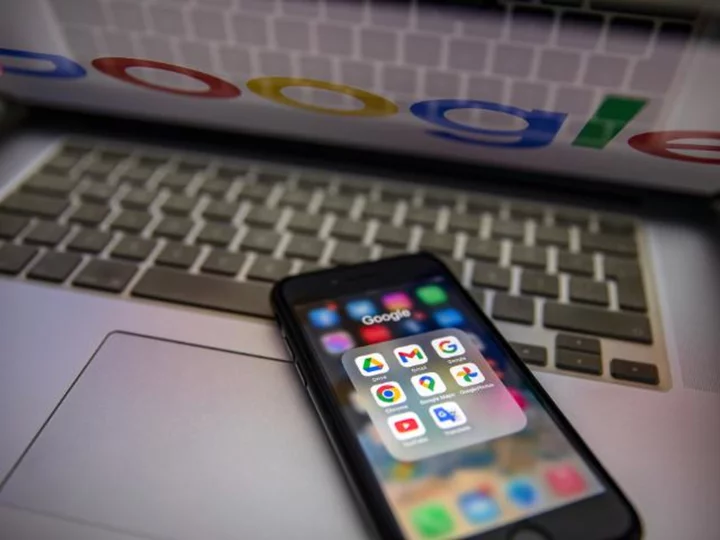
Google looks to do away with passwords, making 'passkeys' the default option
Google is looking to make passwords obsolete by prompting users to create passkeys to unlock accounts and devices with a fingerprint, face scan or pin number.
2023-10-11 04:25
